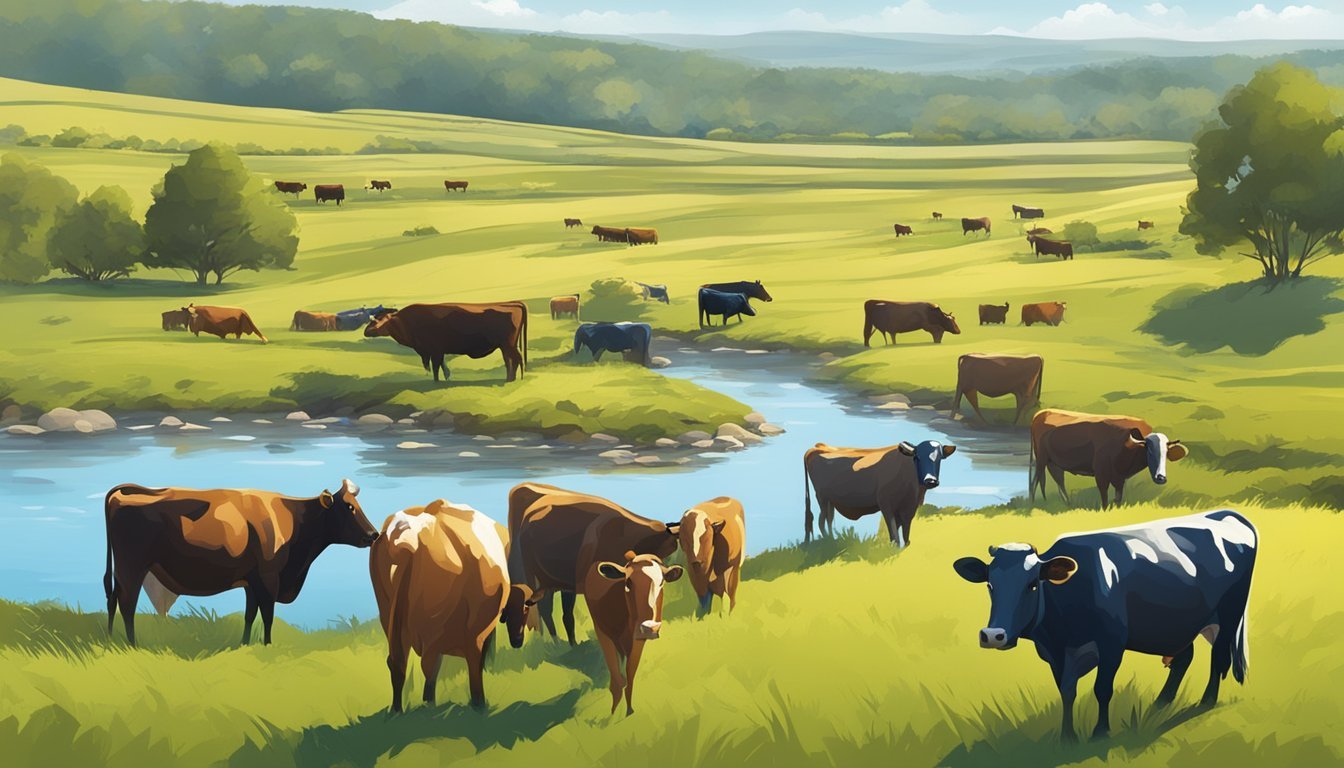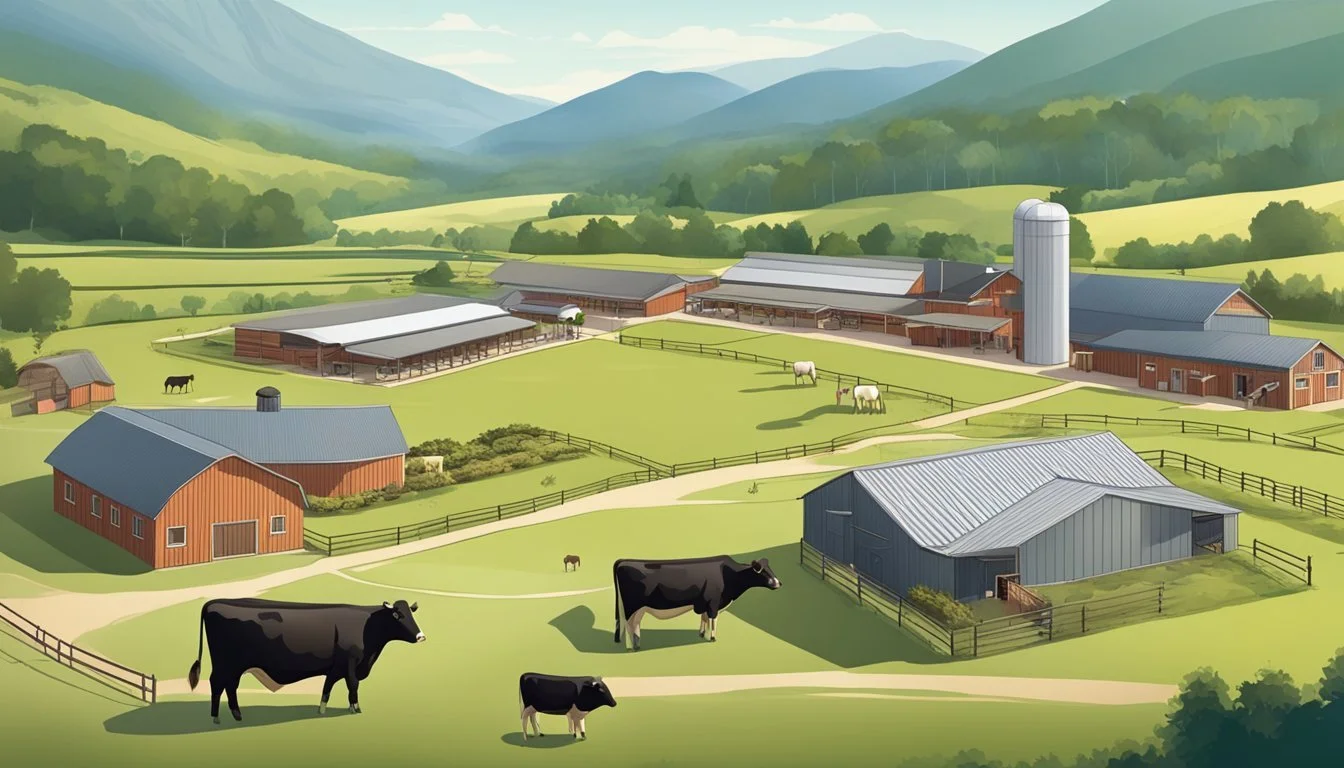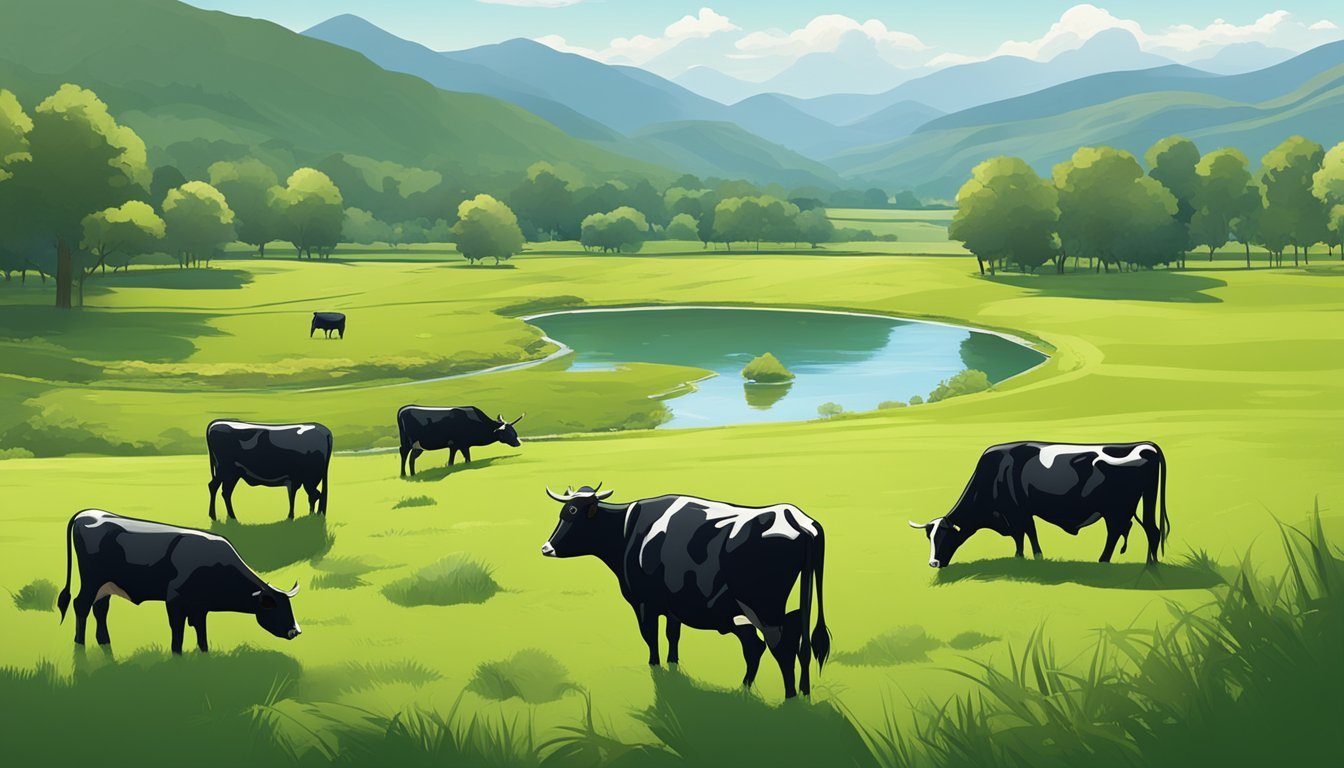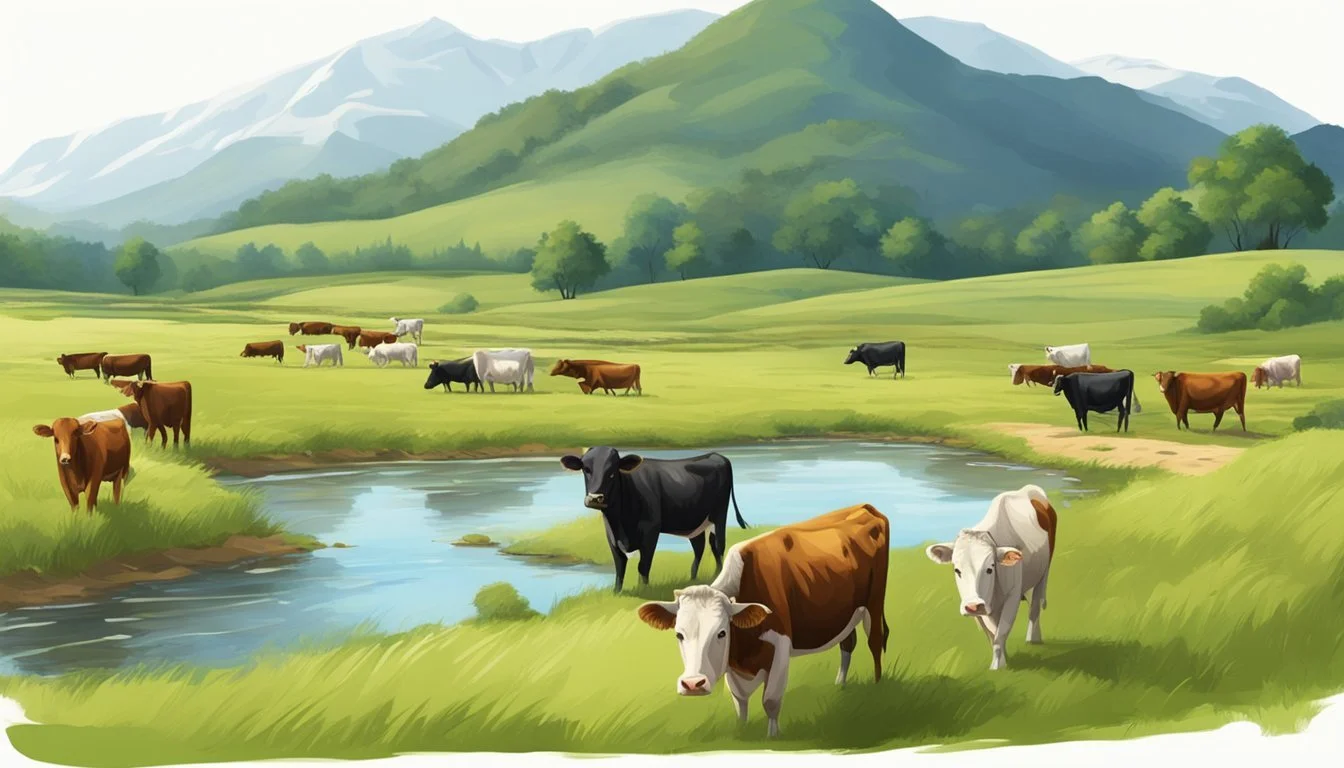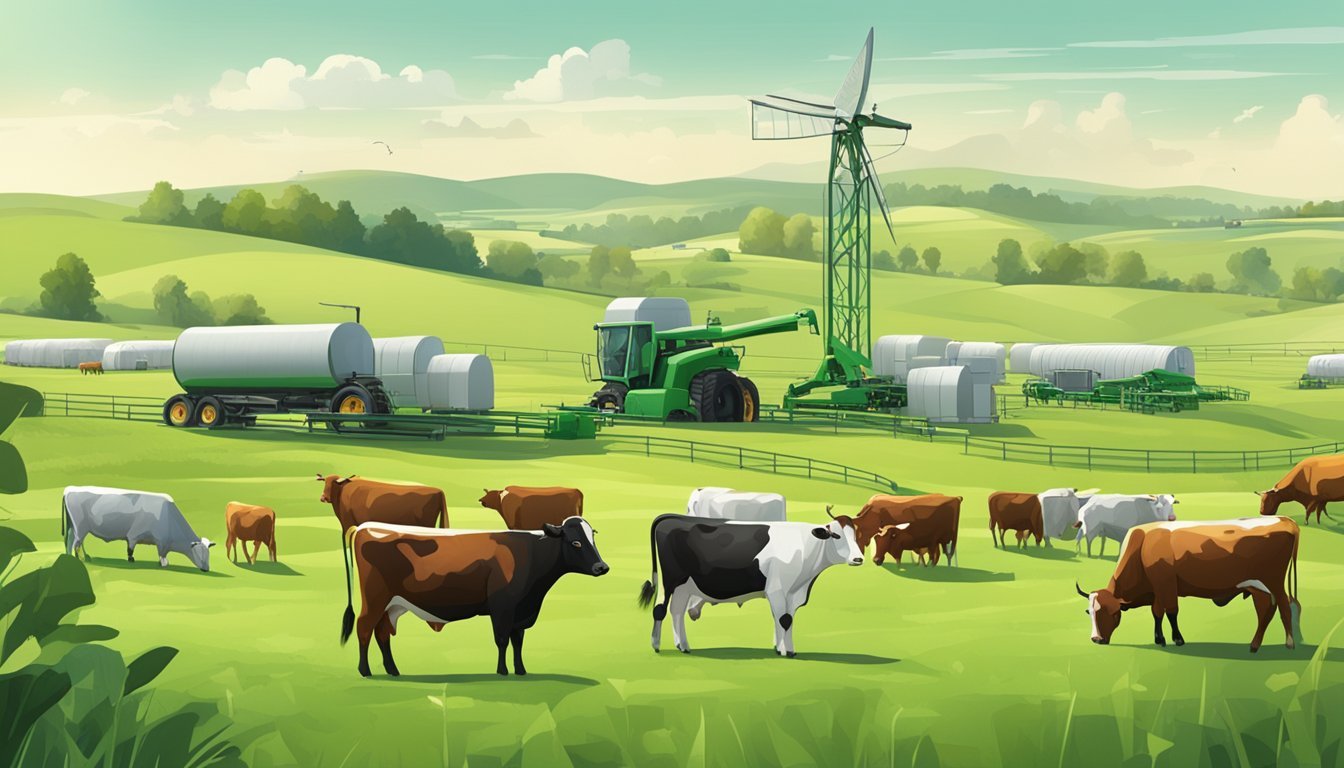What Are the Guidelines for Ethical Cattle Farming?
Key Principles and Practices
Ethical cattle farming is a practice centered on the humane treatment of cattle throughout their lifecycle. This approach to livestock management prioritizes the welfare and well-being of the animals, seeking to ensure that their physical and psychological needs are sufficiently met. Ethical farming guidelines typically encompass areas such as feeding, housing, handling, medical treatment, and the provision of a suitable environment that allows for natural behaviors.
The key principles in ethical cattle farming involve providing adequate space, access to pasture, clean water, a balanced diet, and prevention of diseases. Minimizing stress through gentle handling and appropriate transportation is also integral. With increasing consumer awareness of animal welfare, ethical farming practices are not just moral obligations, but also a means to improve the quality of the end products, as healthier animals often result in healthier meat and dairy.
Advocates for ethical farming practices argue that such methods have multiple benefits, including environmental sustainability and improved animal health, which can lead to positive outcomes for both producers and consumers. Research indicates that meat from animals raised ethically may be lower in fat and higher in certain nutrients. In response to consumer demand and societal expectations, many farms are adopting standards and certifications that reflect a commitment to ethical and responsible cattle farming methods.
Fundamentals of Ethical Cattle Farming
Ethical cattle farming encompasses a set of practices that seek to address animal welfare, environmental sustainability, and adherence to ethical values. This section explores the key components that define such an approach to agriculture.
Understanding Ethical Values in Agriculture
The core ethical concerns in cattle farming revolve around the treatment of animals, the impact on the environment, and the socio-economic implications on communities. Ethical values dictate that animals should be afforded a quality of life that allows them to engage in natural behaviors, provides them with humane living conditions, and ensures respectful treatment throughout their lifespan.
Philosophies Behind Animal Welfare
Animal welfare in the context of cattle farming is underpinned by philosophical ethics that advocate for the humane treatment of livestock. These philosophies challenge traditional practices and aim for a balance where the needs of cattle are met without compromising their well-being. This includes considering the psychological and physical health of animals as a priority.
Principles of Sustainable Livestock Farming
Sustainable livestock farming is a method that integrates the concepts of environmental stewardship, social responsibility, and economic viability. It includes adopting responsible feed management strategies and ensuring that farming practices do not deplete natural resources or negatively impact the ecosystem. The goal is to create a system where livestock production can continue without compromising the ability of future generations to meet their own needs. The principles put forth by sustainable livestock farming practices provide a roadmap for an agricultural system in harmony with the planet.
Legislation and Industry Standards
In the realm of ethical cattle farming, adherence to comprehensive legislation and industry standards is essential. They are pivotal in ensuring the integrity of animal health and welfare, while also shaping the operational aspects of livestock management.
Global and Local Laws Governing Cattle Farming
Legislation at both the international and local levels plays a critical role in cattle farming practices. Globally, there may not be a single, unifying legal framework, but many countries have devised their own stringent policies to regulate livestock management. For instance, laws such as the National Pollutant Discharge Elimination System (NPDES) Concentrated Animal Feeding Operation Rule in the United States require large CAFOs to adhere to nutrient planning requirements and to obtain a permit if there are discharges to a water body. In contrast, EU legislation on dairy cattle welfare shows a marked diversity in implementation across member states.
Standards for Animal Health and Welfare
Animal health and welfare are at the forefront of ethical cattle farming standards. The only common EU legislation for dairy cattle welfare focuses on calves, which results in a variance in welfare assurance across European countries. Standards may often be supplemented by industry guidelines or certifications, such as those suggested by the Animal Welfare Institute, which recommend enhanced welfare measures for inclusion in assurance programs like FARM.
Impact of Policies on Farming Practices
Policies directly influence farming practices by setting criteria that must be met. For instance, Australia has developed national standards and guidelines which update and replace the Model Code of Practice for the Welfare of Animals. These guidelines outline specific requirements for cattle such as:
S1.1 Essential Requirement: A person must take reasonable actions to ensure the welfare of cattle under their care.
G1.1 Additional Practices: Management should include an understanding of the standards and guidelines for cattle.
Such policies ensure that animal rights are not just moral considerations, but also legal imperatives that shape the ethical landscape of livestock farming.
Animal Welfare and Quality of Life
Ethical cattle farming hinges on the principles of animal welfare and quality of life. This involves creating improved living conditions, developing strategies for stress reduction, and meticulously assessing animal behavior and well-being.
Improved Livestock Living Conditions
To enhance farm animal welfare, specific standards for livestock living conditions are essential. These include adequate space per animal, comfortable bedding, and access to pasture or outdoor areas. Temperature and ventilation control within housing units are critical to prevent overheating or discomfort, as stated in the guidelines for improving animal welfare in livestock operations. Investment in proper shelter design and maintenance ensures animals are protected from adverse weather conditions and potential injuries.
Stress Reduction and Enrichment Strategies
Minimizing stress is a key aspect of stress reduction and enrichment strategies. Routines should be put in place that reduce fear and anxiety during handling, transport, and routine management procedures. Providing enrichment, such as objects to interact with or varied feeding strategies, can help promote natural behaviors and mental stimulation, contributing to a better quality of life for the cattle.
Assessment of Animal Behavior and Well-Being
Regular assessment of animal behavior and well-being is necessary to ensure ethical standards are met. Behavioral indicators, physiological measures, and health assessments are tools used to gauge well-being, revealing if the animals are thriving in their environment. Alignment with the philosophical ethics of improving the lives of farmed animals is imperative, and such evaluations can direct further improvements in animal husbandry practices.
Environmental Management and Sustainability
In the realm of ethical cattle farming, environmental management and sustainability are crucial. They involve strategies aimed at reducing the cattle industry's carbon footprint, optimizing resource use, and incorporating renewable energy into farming practices.
Reducing Greenhouse Gas Emissions
The livestock sector is responsible for a significant portion of greenhouse gas emissions which contribute to climate change. Strategies such as improved feed efficiency, the use of methane inhibitors, and enhanced manure management can reduce emissions. Techniques like selective breeding for more climate-resilient cattle are also important. For a more detailed discussion of these practices, the World Resources Institute offers valuable insights on how to make beef production more sustainable.
Water and Land Use Efficiency
Efficient use of water and land resources is essential for sustainability. Sustainable livestock farming involves managing grazing lands to prevent overuse, which contributes to soil erosion and habitat loss. Practices such as rotational grazing and integrated crop-livestock systems can greatly improve land use efficiency, contributing to soil health and biodiversity. The benefits of effective grazing land management are outlined in a report on U.S. cattle production sustainability.
Integrating Renewable Energy Sources
Incorporating renewable energy sources like solar or wind power reduces the reliance on non-renewable resources and cuts operational costs. By utilizing solar panels for electricity or biogas digesters to turn waste into energy, cattle farms can move towards a more environmentally friendly operation. Transforming a cattle operation to harness renewable energy can be guided through resources such as those provided by Scale Climate Action, detailing approaches for sustainable livestock farming.
Feed and Nutrition
Ensuring proper nutrition through ethical cattle farming practices is crucial for the health of the cattle and the sustainability of the farming operations. This segment delves into the specifics of feeding protocols, the role of modern precision feeding technologies, and strategies to manage feed waste and quality.
Feeding Protocols for Ethical Cattle Farming
Feeding protocols in ethical cattle farming must prioritize the natural needs and welfare of the cattle. This includes providing a balanced diet rich in nutrients that focus on the well-being of the cattle rather than just maximizing production. It also involves ensuring feed is sourced responsibly, considering the environmental impact and supporting local feed production wherever possible. The Ethical Farming Fund highlights the health benefits of livestock raised on pasture, emphasizing lower fat and higher nutrient content in the resulting meat.
Advancements in Precision Feeding Technologies
Precision livestock farming (PLF) technologies are at the forefront of modern ethical cattle farming. These advancements allow for monitoring individual cattle's intake and customizing diets to meet the specific needs of each animal, promoting better health and reducing resource waste. With precision feeding systems, farmers are able to accurately calculate and deliver the optimal amount of feed, which helps maintain the cattle in a prime condition while also conserving feed resources. For instance, the adoption of automated feeding systems can optimize the growth and milk production of dairy cattle by ensuring they receive the right nutrients in precise amounts.
Addressing Feed Waste and Quality
Reducing feed waste is a key aspect of ethical cattle farming, reflecting a commitment to environmental stewardship and economic efficiency. Implementation of best practices in feed storage and handling can significantly minimize spoilage and contamination. Moreover, regular quality assessment of feedstuff is paramount to safeguard the cattle's health and the quality of beef and dairy products. Efforts to enhance the quality of feed translate into better feed conversion rates, which means that more of the feed is effectively turned into muscle or milk, rather than being wasted.
Ethical Livestock Farming Practices
Ethical livestock farming emphasizes the well-being of animals and the sustainability of agricultural practices. Below are detailed guidelines for raising cattle in a manner that prioritizes their natural behavior and the integrity of the ecosystem.
Implementing Pasture-Raised and Grass-Fed Systems
Pasture-raised systems ensure cattle have continuous access to open fields, allowing them to roam, graze, and partake in natural behaviors. This method is intrinsically linked to grass-fed practices, where cattle diet is composed primarily of grasses found in pastures, which is beneficial for their digestion and overall health. Studies suggest pasture-raised animals contribute to environmental benefits, such as improved soil vitality due to natural fertilizer from manure and better water retention.
Farm Animal Autonomy and Ethical Considerations
Autonomy in livestock refers to the freedom for farm animals to express their natural behaviors. Ethical considerations call for practices that minimize stress and discomfort for the animals. This includes providing sufficient space, proper shelter, and social interaction opportunities. An ethical examination of cattle farming involves assessing the impact of these practices on both animal welfare and integrity of the product, ensuring farming methods align with consumer values associated with humane treatment.
Technology and Innovation
Technology plays a critical role in modernizing cattle farming practices, integrating innovations like big data and artificial intelligence to enhance both animal welfare and farm productivity.
Utilizing Digital Agriculture and Big Data
Digital agriculture harnesses big data to inform decisions, boost efficiency, and improve sustainability in cattle farming. By aggregating large volumes of information—from genetic profiles of cattle to milk yields—farmers can analyze trends and optimize breeding and feeding practices. Techniques for data collection and integration are central to this approach, enabling a comprehensive overview of farm operations through platforms that can process and visualize complex datasets.
Employing Sensors and Artificial Intelligence
Innovative farms deploy sensors to monitor animal health and behavior, relaying information in real-time for actionable insights. Artificial intelligence (AI) then processes this data, predicting potential health issues before they become critical. AI-driven technologies can also guide precision feeding programs, ensuring cattle receive a diet tailored to their individual needs, thus supporting ethical farming by promoting animal welfare.
Improving Farm Management with Advisory Support
Farm management software, empowered by digital agriculture, becomes an indispensable tool for ethical cattle farming. This software provides advisory support, drawing upon a multitude of data points to aid in making informed and ethical decisions. This includes guidance on sustainable resource utilization and maintaining animal health, which aligns with broader ethical standards.
In this digital era, cattle farming is increasingly influenced by technological advancements. Farmers who embrace these innovations are well-positioned to meet the dual demands of productivity and ethical responsibility.
Socioeconomic Factors
In the context of ethical cattle farming, socioeconomic factors intertwine with sustainable practices to affect consumer trust, farmer participation, and the dissemination of agricultural knowledge. These elements shape the industry's future and public health outcomes.
Consumer Trust and Public Health Considerations
Consumers increasingly demand transparency about the origin of their food and the welfare of animals in the production process. The link between ethical livestock farming practices and public health cannot be overstated. Practices such as responsible antibiotic use and humane slaughtering methods not only foster trust but also mitigate risks associated with zoonotic diseases and antimicrobial resistance.
The Role of Farmers and Stakeholders
Farmers and stakeholders are at the core of implementing ethical practices. They consider environmental, economic, and ethical factors while ensuring adherence to animal welfare guidelines. Support from cooperatives, industry regulations, and ethical certifications empowers farmers to pursue sustainable livestock farming that aligns with consumer expectations for ethical meat production.
Agricultural Education and Skills Development
A robust foundation of agricultural education and skills development is vital to equip farmers with modern ethical farming techniques. Enhanced knowledge allows them to improve farm sustainability through strategies like increased self-produced feeds and maximized grazing on natural pastures, as highlighted in Nature's scientific reports. Continuous learning opportunities and skill enhancement are paramount in nurturing the next generation of farmers in line with evolving ethical standards.
Challenges and Future Perspectives
Ethical cattle farming faces numerous challenges including meeting global meat demand while investing in innovative practices that uphold animal welfare. These practices must align with responsible innovation principles, ensuring both industry sustainability and ethical standards.
Addressing the Global Demand for Meat
The global demand for meat is growing, as is the responsibility to fulfill it through ethical farming practices. Producers are tasked with balancing the need to increase supply with the imperative to maintain and improve standards of animal welfare.
Investment and Innovation in Animal Science
Investments in animal science are crucial for the advancement of ethical cattle farming methods. Scientific research and development play a pivotal role in creating better living conditions for cattle. They also contribute to efficient breeding programs, health management, and environmentally sustainable practices.
Promoting Ethical and Responsible Innovation
The sector must prioritize responsible innovation, which integrates consumer health, environmental protection, and animal welfare. Implementing transparent and ethical practices, such as improved livestock monitoring and welfare assessments, is essential for the long-term viability of cattle farming.

